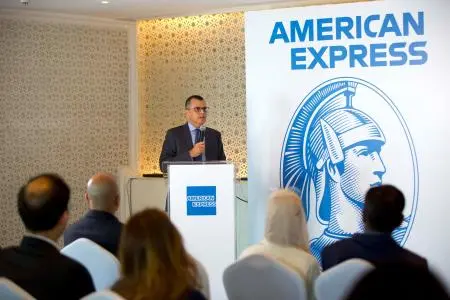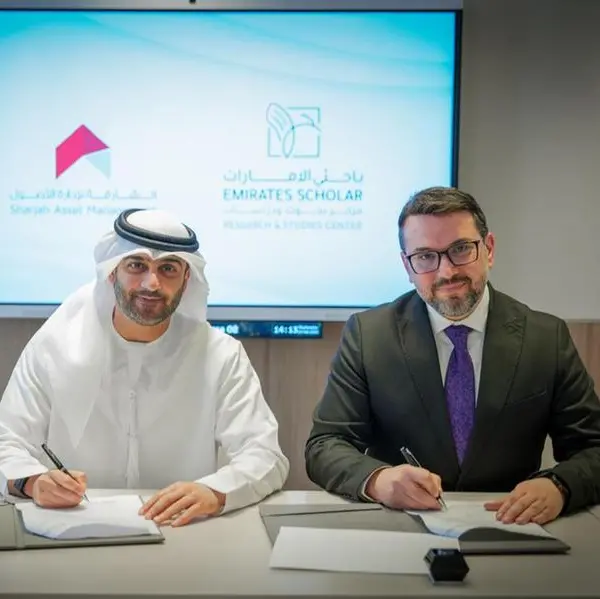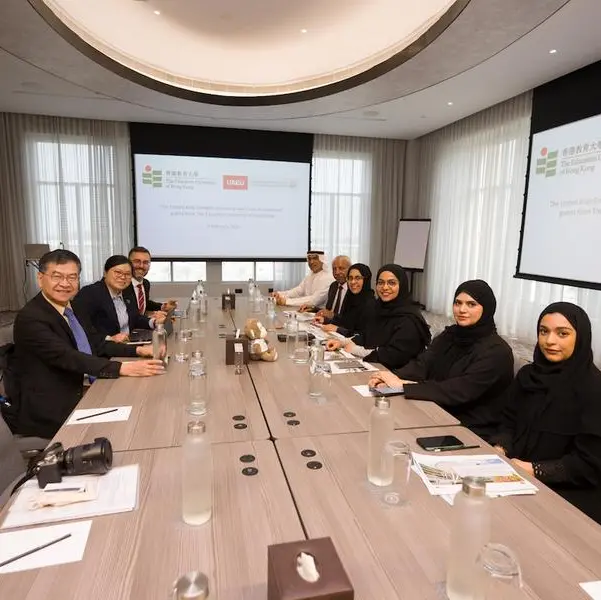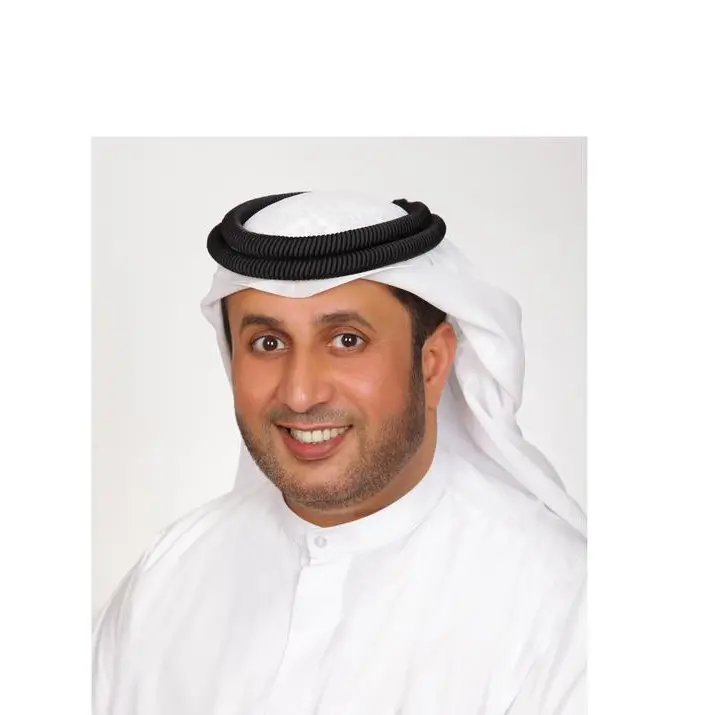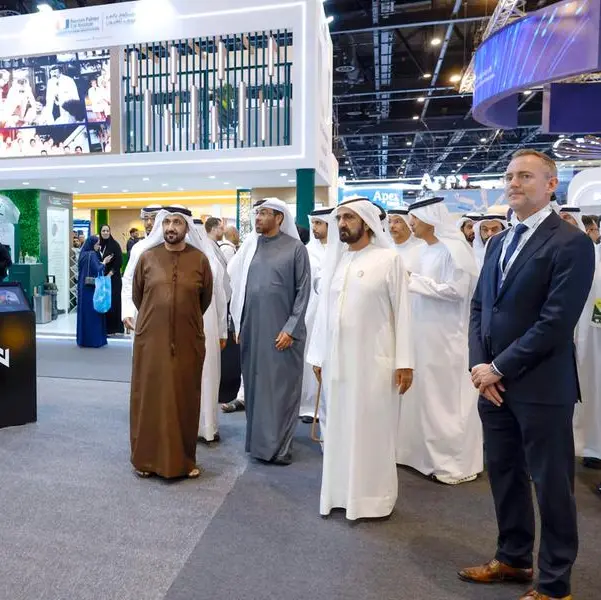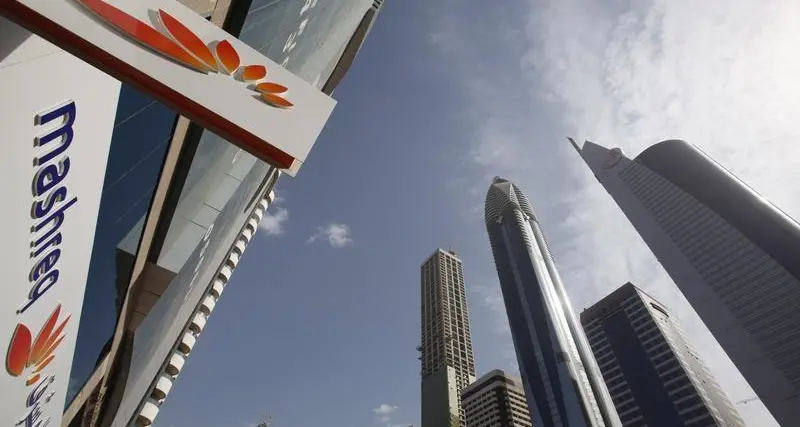PHOTO
Bahrain: Senior finance executives across the Middle East remain optimistic about the economy, the outlook for their companies and their investments for the future, despite economic uncertainty, according to the 2019 Global Business & Spending Outlook, a survey released today by American Express Middle East and Institutional Investor Thought Leadership Studio.
The cross-industry findings in the joint American Express and Institutional Investorstudy are based on a global survey of 901 CFOs and other senior finance executives of firms with annual revenues of $500 million or more. 180 of these respondents are located across the Middle East region including the United Arab Emirates, Saudi Arabia, Egypt and Bahrain. Now in its twelfth year, the survey was conducted in late November and December 2018.
Whilst senior executives suggest they are less likely to foresee economic growth in the region as they did last year (72% in 2019 vs 92% in 2018) due in part to lower oil prices, the growth outlook for the Middle East is in line with expectations worldwide. 71% of the total response base anticipates a substantial or modest expansion in their home countries. Additionally, growth expectations within the region range from 67% of respondents from Bahrain expecting substantial or modest expansion, to a high of 77% in Egypt.
Only 10% of senior finance executives from the Middle East foresee a modest or substantial contraction in 2019. Of the 72% who do expect to see growth in 2019, 45% anticipate modest expansion while 27% anticipate a substantial economic expansion. The majority of executives saw their companies’ worldwide revenue rise in 2018 and the Middle East showed especially strong firm-level performance compared with Europe and Asia.
“Despite operating in unsettled times, senior finance executives across the region are concentrating on their day-to-day business but keeping an eye on the future,” said Mazin Khoury, Chief Executive Officer, American Express Middle East. “While they balance spending to drive topline growth with profitability, they’re pressing ahead with expansion plans, which include pursuing foreign trade opportunities, hiring and investing in next-generation technology.”
Foreign trade drives Middle East growth prospects
This year’s survey also highlighted that despite uncertainties around global trade issues, a majority (64%) of senior finance executives in the Middle East expected socioeconomic changes and global trade policy would strengthen their companies’ growth prospects in the near future, while only 5% of senior executives think these issues will weaken growth prospects. This view aligns with respondents globally, where 66% believe economic changes and global trade policy will strengthen their companies’ growth prospects.
Additionally, it was suggested that expanded foreign trade will be based more on organic strategies than partnerships, with companies most likely to set up or expand foreign operations (75%) and use online media for marketing programs (70%) to pursue international growth opportunities. These company-controlled strategies are preferred consistently over local partnerships and alliances in foreign markets (58%) and produce/service localization (48%), a sign that a more nimble approach to foreign trade is taking hold in the Middle East.
Next-Gen Technology and Innovation dominating corporate strategy and spending
And while digital transformation is clearly a central theme for the majority of organisations across the region, this year’s study also revealed a growing awareness for the dramatic impact of next-generation technology on competitive dynamics within industries (31%, up from 23% last year). Expectations for major disruption on company operations and performance (16%, compared to 18% last year) or on countries have waned (14%, down from 21% last year). Among those industries surveyed, the media entertainment/ travel (43%), wholesale/retail (41%) and construction (38%) industries are most likely to anticipate major disruption to their industry’s competitive dynamics.
Queried on the greatest technology challenge to their industry across the region, senior finance executives in this year’s study cite the use of artificial intelligence (59%), Fintech applications for payments, risk management or investment management (48%), and the Internet of Things (IoT), which includes embedded sensors and ubiquitous, internet connected devices (43%).
Against this backdrop, in keeping with their focus on the next generation, many Middle Eastern companies are investing in these emerging technologies. The most popular being artificial intelligence (AI) where 66% of respondents indicated this was a major areas of focus (up from 40% in 2018). Other areas of focus included the Internet of Things (57% in 2019 vs 24% in 2018), and fintech (44% in 2019 versus 27% in 2018).
The continued emergence of ‘Generation Z’
Another key theme from this year’s survey was the continued rise of ‘Generation Z’, as both a customer and employee. Young people under the age of 24 now make up between 50% and 65% of the Middle East population, and senior finance executives across the region believe their companies are prepared for this generation (‘Generation Z’) and the technological and economic changes they bring with them. 81% of those asked agreed with the statement, “My company has a long-term plan that considers technological, demographic and economic changes over the next 5-10 years” and 78% agreed that, “My company has explicit strategies to appeal to ‘Generation Z’ consumers born between 1995 and 2005.”
The war for talent extends beyond compensation
Companies across the region will continue to be competing for talent in a highly competitive marketplace in the coming year, but senior finance executives are looking beyond compensation to attract and retain the best employees. In the Middle East, 61% of senior executives expect to increase their companies’ worldwide number of employees between 8%-15%. On average, headcount will grow by 8.6% for companies across the region, somewhat lower than the global average of 9.2%.
However, this increase is not going to be accompanied by aggressive increases in compensation. Instead companies will focus on improving career development opportunities and working environments.
Just 31% of respondents intend to raise wages or salaries to attract and retain employees in 2019. Instead companies will expand career development opportunities (56%), improve working environments through reconfigured office spaces and increased amenities (56%), and allow flexible working arrangements (45%).
About the research - Methodology
The 2019 Global Business & Spending Outlook was conducted by Institutional Investor Thought Leadership Studio (IITLS) and is based on a survey of 901 senior finance executives from companies around the world with annual revenues of $500 million or more. 180 of these respondents are located across the Middle East region including the United Arab Emirates, Saudi Arabia, Egypt and Bahrain. All survey responses were gathered in late November and December 2018. IITLS estimates the margin of error for the survey to be approximately +/-3.2% at a 95% level of confidence.
For more details, you can download the 2019 Report and learn more about Middle East finance executives’ views on economic outlook, spending plans and the future of technology by clicking here http://bit.ly/AMEXGBSO2019
About AMEX (Middle East) B.S.C.(c)
American AMEX Middle East is a payments company, providing customers with access to products, insights and experiences that enrich lives and build business across the Middle East and North Africa.
We began operations in the MENA region in 1959 and set up our first office in Bahrain in 1977. In 1992, AEME was established in Bahrain as a joint venture company owned by American Express and Mawarid Investment Limited.
Today, we employ a diverse workforce of more than 500 employees, covering its consumer card, corporate payments and merchant businesses across the Middle East and North Africa region.
Our aim is to offer the powerful backing and full support of American Express to all of our customers, partners and stakeholders in everything that they do.
Learn more at www.americanexpress.com.bh and connect with us onwww.facebook.com/AmericanExpressME www.linkedin.com/company/AmericanExpressME
About Institutional Investor
For more than 50 years, Institutional Investor has consistently distinguished itself as the world’s foremost financial publication and convener of global institutional investors. By leveraging Institutional Investor, exclusive memberships, forums, industry benchmarks, award-winning content, and workflow solutions such as capital placement, Institutional Investor is the essential hub for the world’s financial decision-makers.
www.institutionalinvestor.com
© Press Release 2019Disclaimer: The contents of this press release was provided from an external third party provider. This website is not responsible for, and does not control, such external content. This content is provided on an “as is” and “as available” basis and has not been edited in any way. Neither this website nor our affiliates guarantee the accuracy of or endorse the views or opinions expressed in this press release.
The press release is provided for informational purposes only. The content does not provide tax, legal or investment advice or opinion regarding the suitability, value or profitability of any particular security, portfolio or investment strategy. Neither this website nor our affiliates shall be liable for any errors or inaccuracies in the content, or for any actions taken by you in reliance thereon. You expressly agree that your use of the information within this article is at your sole risk.
To the fullest extent permitted by applicable law, this website, its parent company, its subsidiaries, its affiliates and the respective shareholders, directors, officers, employees, agents, advertisers, content providers and licensors will not be liable (jointly or severally) to you for any direct, indirect, consequential, special, incidental, punitive or exemplary damages, including without limitation, lost profits, lost savings and lost revenues, whether in negligence, tort, contract or any other theory of liability, even if the parties have been advised of the possibility or could have foreseen any such damages.
